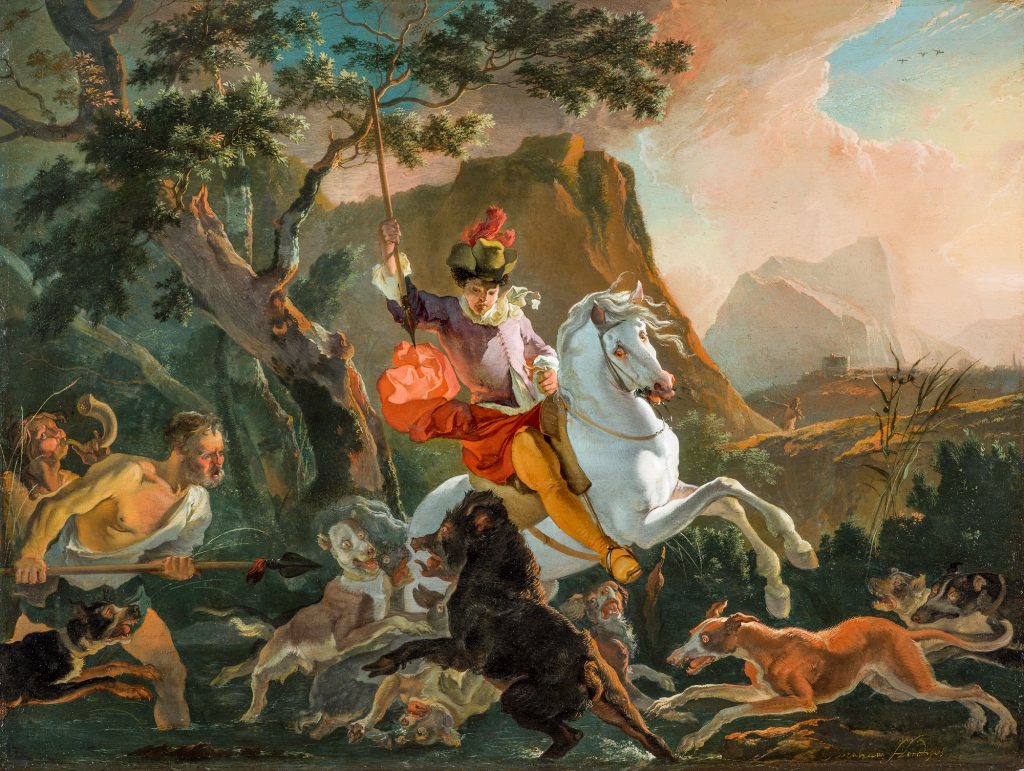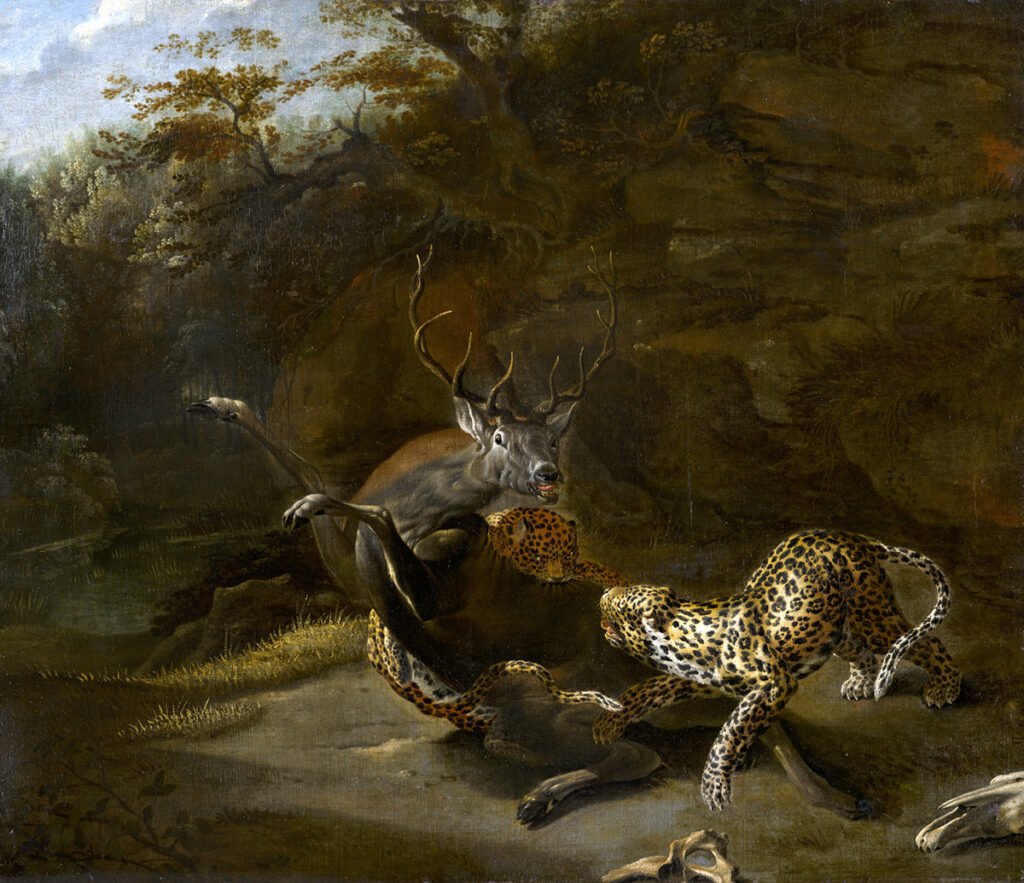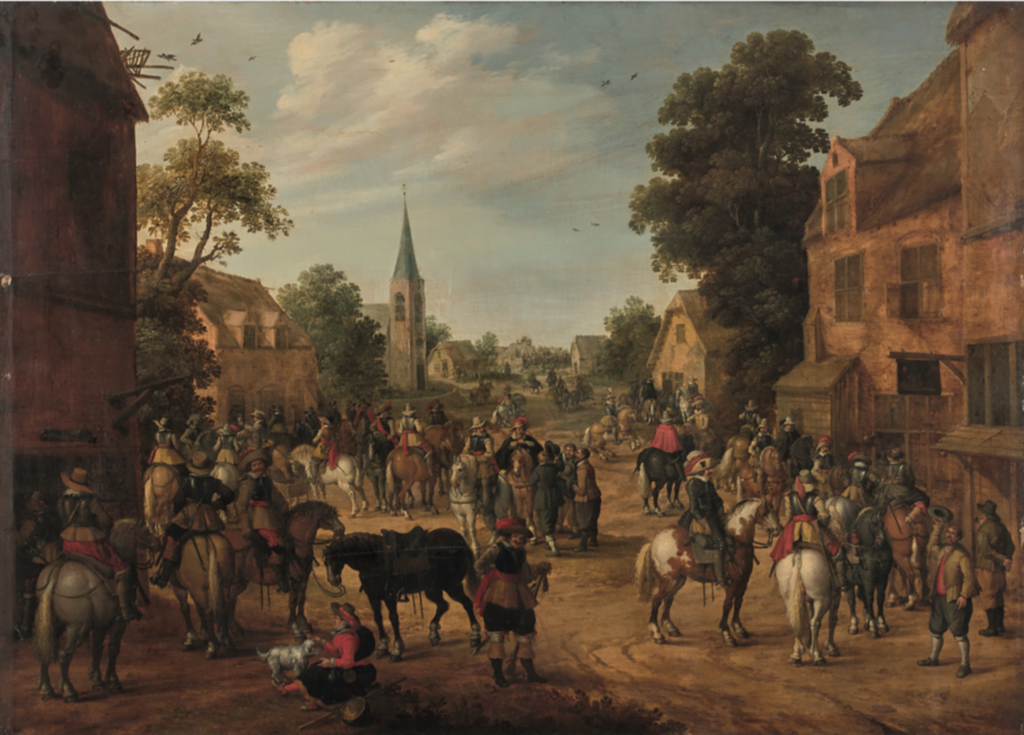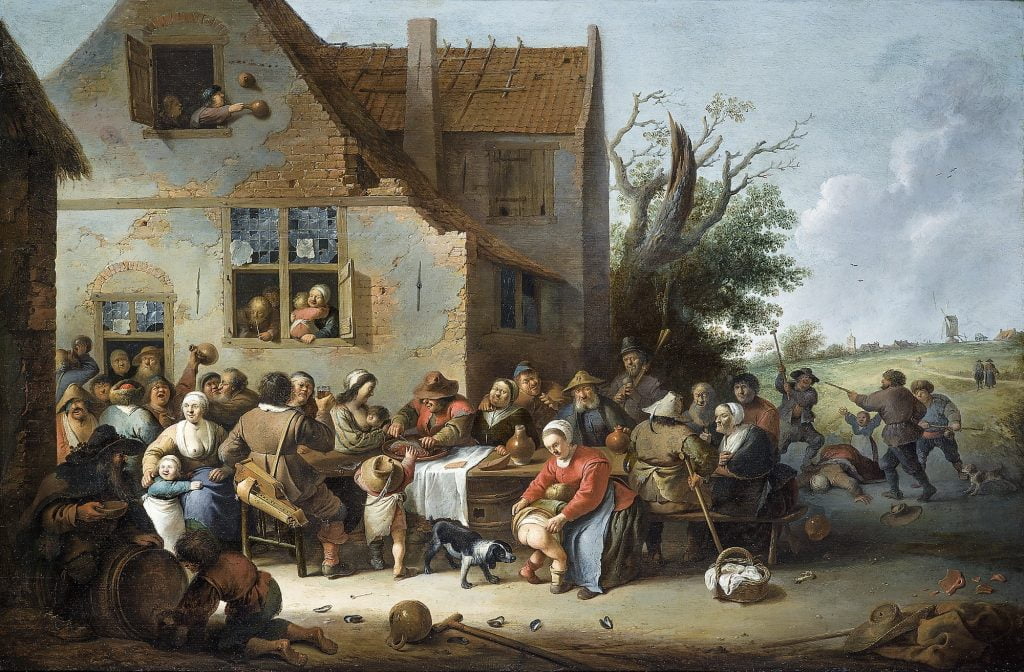Abraham HONDIUS
Boar Hunt
Oil on panel, 46.8x62.8cm
Signed (lower right): “Abraham Hondius”
Abraham Hondius, a Dutch painter of the Baroque period, was born into the family of a stonemason. He studied painting under Cornelis Saftleven (1607/08 – 1681) and possibly under Pieter de Bloot (1601 – 1658). He was known primarily for his animal paintings: more than two thirds of his works are devoted to animals. In 1666 he moved to London where he painted views of the city streets and squares, of the Thames and London’s bridges. His last known work is “Ape and cat fighting over dead poultry”, dated 1690. His creative work bears resemblance to Flemish artists of the previous generation, especially to the scenes by Frans Snyders of hunting wild animals with hounds.
Today Hondius’s work is represented in the public collections of the most important museums worldwide, among them the Metropolitan Museum of Art, New York, USA; the Rijksmuseum, Amsterdam, Holland; the Cleveland Museum of Art, Ohio, USA; the Courtauld Institute of Art, London, England; the Kelvingrove Art Gallery and Museum, Glasgow, Scotland; the Museum of Fine Arts, Bordeaux, France, and the Slovak National Gallery, Bratislava, Slovakia.
Depictions of various hunting scenes were very popular in Holland in the middle of the 17th century. This was encouraged by the artistic-aesthetic moods spreading in the society, by general economic growth and by the interest of the new fundamental social class, the Burghers, in this kind of entertainment. For example, rich citizens who could not afford the real “sport of the kings” could purchase a painting featuring a hunting scene and exhibit it in their home. Although Hondius’s style was influenced by several painting styles, the features characteristic to Frans Snyders and his student Jurian Jacobs with their monumental Baroque painting and attraction to decorativeness and picturesque scenery are clearly evident in the composition. Contrasting colour combinations – red, turquoise, and lemon yellow, unusual swirl-shaped perspective elements, dynamic ornament of lines and unexpected compositional accents add expressiveness and movement to this work.
Provenance:
Collection of Art-Life Projekt, Tallinn
Private collection, Switzerland
Exhibitions:
BRAFA 2017





